Brita vs. PUR: Which Is The Better Water Filter?
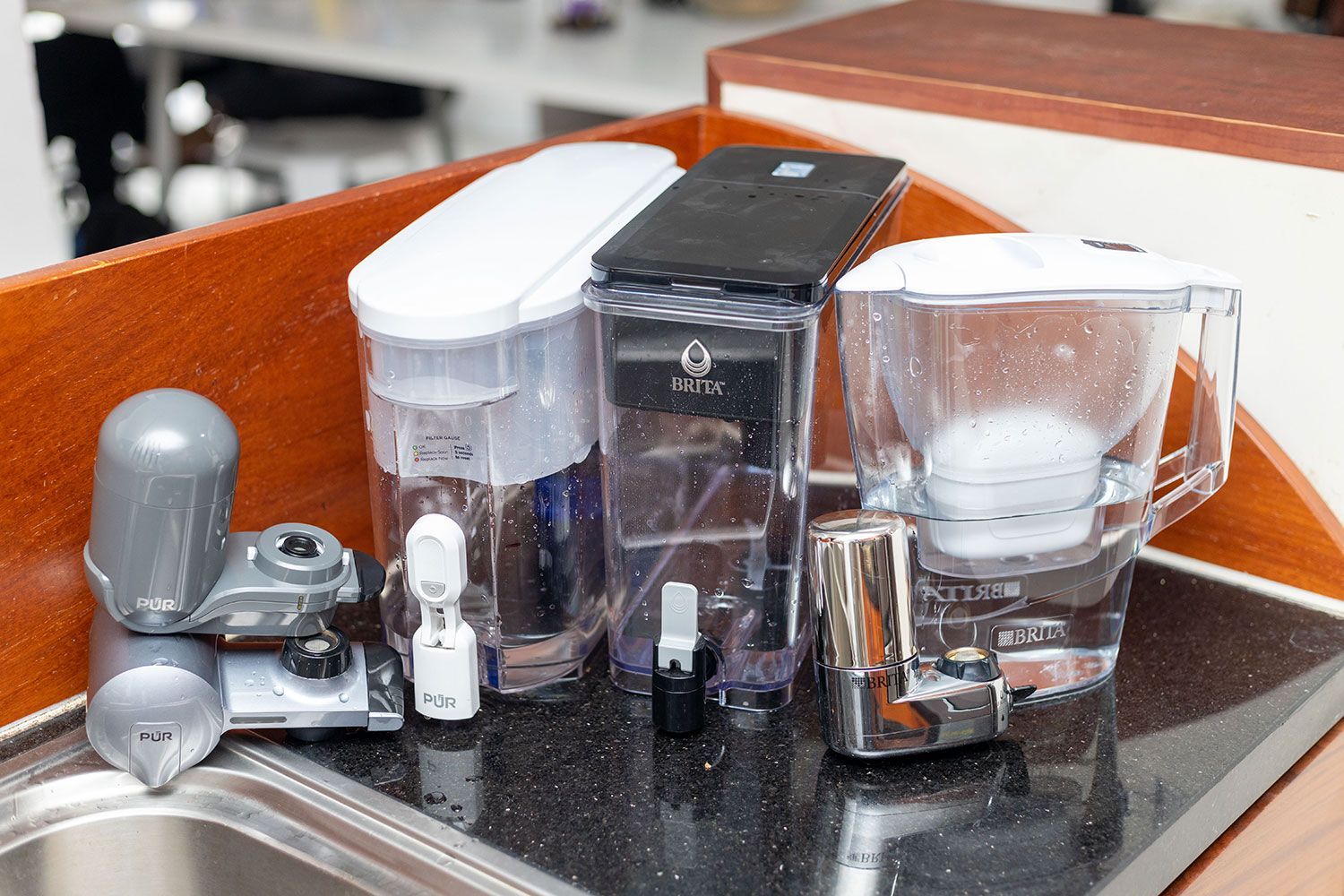
Brita and PUR are the two names that immediately come to mind wherever home water filtering is concerned.
Both companies are veterans in the business with decades of experience. In all of that time, they have both built reputations as dependable, quality suppliers of household filtering systems. But considering their apparent parity, it can be hard to choose a company to stick with.
In this Brita vs. PUR water filtering guide, we want to lay that debate to rest once and for all.
Why You Should Get a Home Water Filtration System
Tap water, while treated at local plants, isn't perfectly clean due to its journey through miles of pipelines. These pipes can harbor microorganisms such as E.coli, Giardia, and Noroviruses, which may end up in household water supplies, per the EPA.
Beyond microorganisms, tap water may also contain harmful inorganic compounds like lead and arsenic, various hazardous organic compounds (such as glyphosate and atrazine), and disinfectants like chlorine and chloroform. High concentrations of these chemicals can lead to gastrointestinal illnesses, and substances like arsenic can increase cancer risks when consumed untreated.
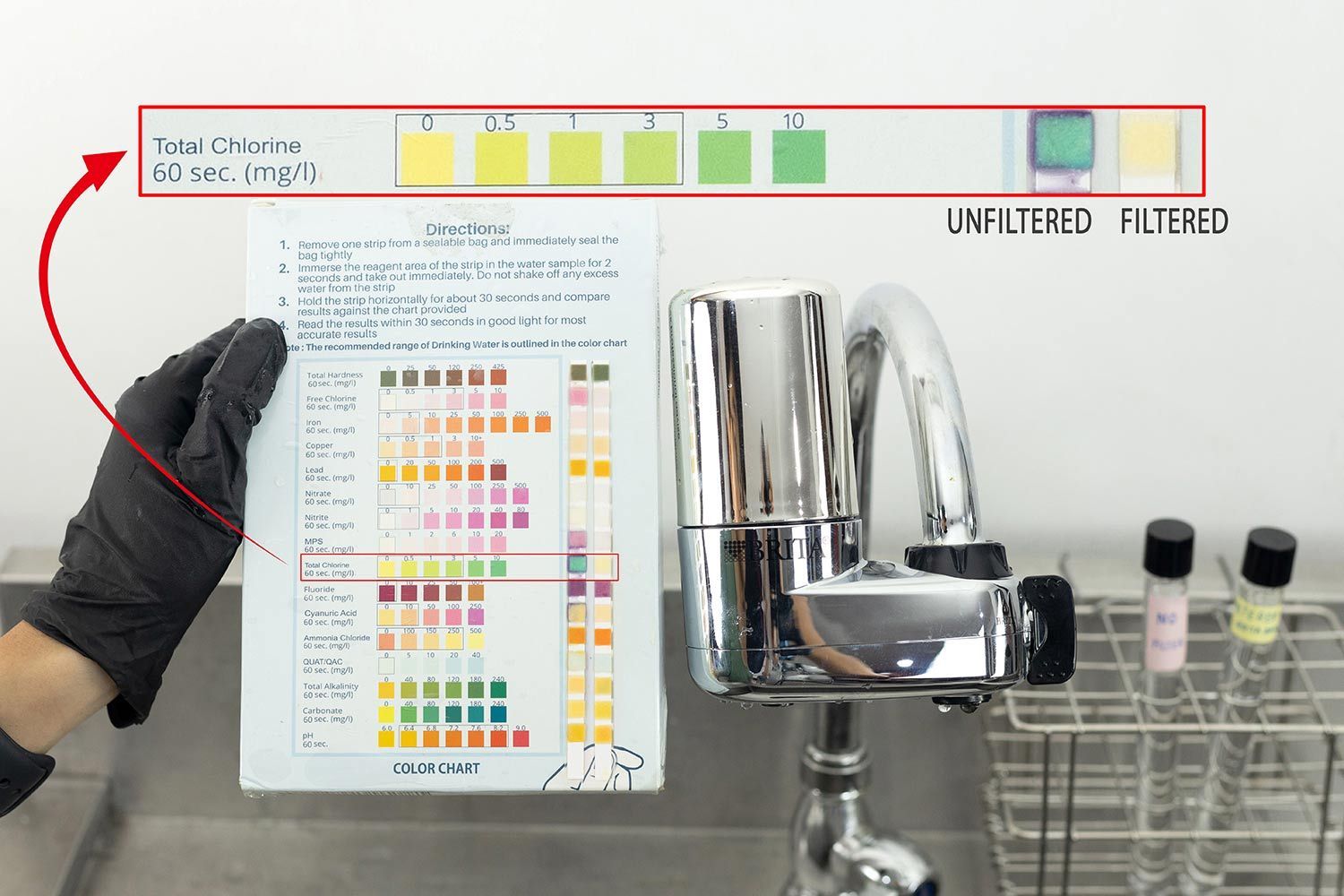
Additionally, many people choose to use home water filtration systems not just for health reasons but because they dislike the taste and smell of tap water. It can have a chemical taste due to chlorine added at the water treatment plant.
Round-Up: Which One Should You Choose?
Why Choose Brita?

Brita has affordability and longevity on its side. All of its water filtering systems (pitchers and faucets) are cheaper than their PUR counterparts. Replacement filters are also cheaper than PUR’s spare filters.
Another advantage that Brita has is that, compared to PUR, their products are more widespread. You can find them in any brick-and-mortar hardware outlet and it takes just a few keystrokes online to find their products, too.
So although it may not have as great filtering performance as PUR. If you’re shopping on a budget and want a purchase that lasts for a long time, Brita would be the better of the two to go with.
Why Choose PUR?
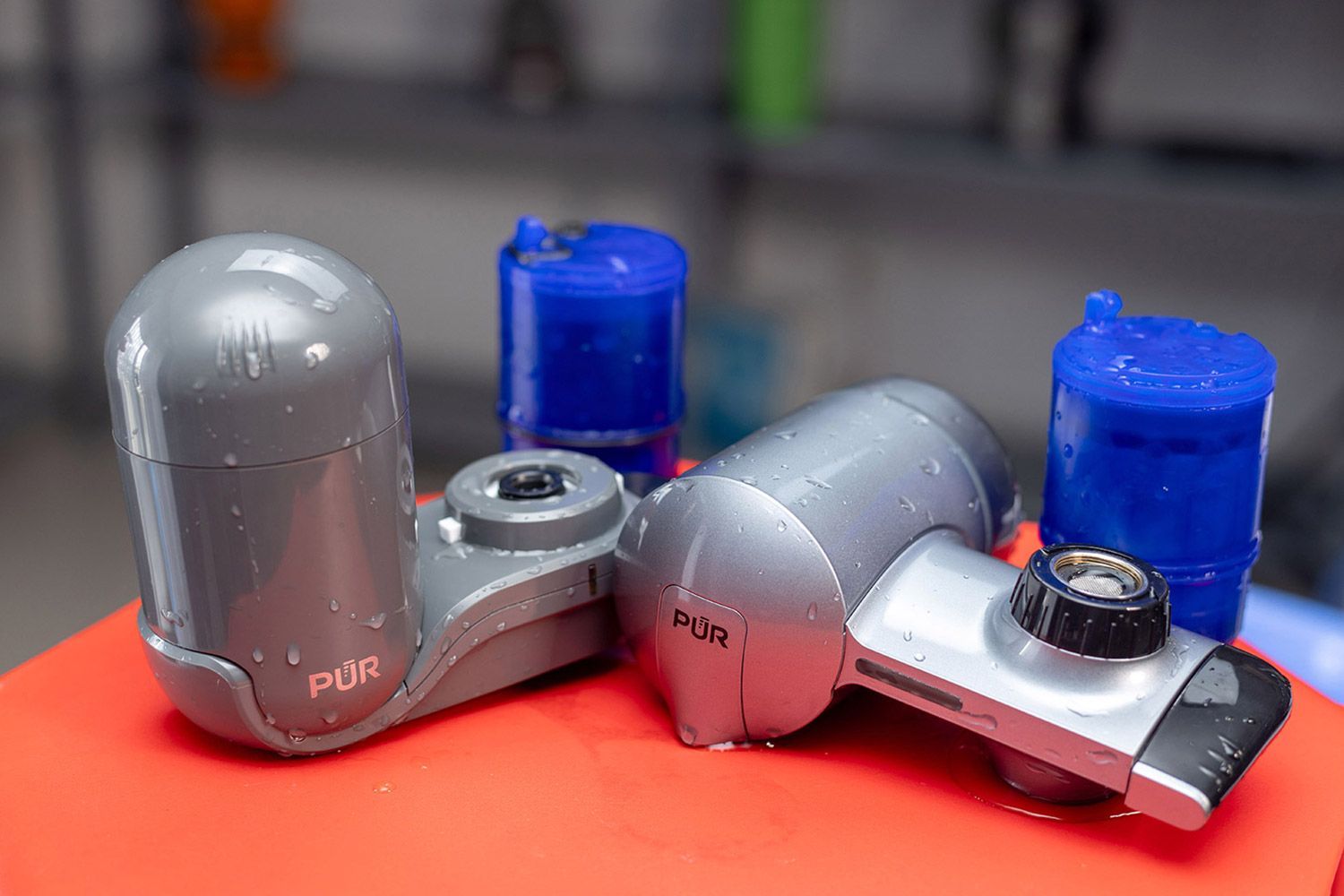
PUR’s specialty is filtering performance. Even its basic filter (the aptly-named PUR Basic) can filter out far more contaminants and particulates than Brita’s top-of-the-line filters. For this reason, if you need a serious water-filtering system, PUR should be considered the better one.
Higher performance comes at a literal cost, though. PUR filtering systems are costlier and replacement filters are also more expensive. It doesn’t help that, as previously mentioned, PUR filters don’t last nearly as long as Brita filters.
You should also keep in mind that PUR replacement filters and systems are notoriously difficult to find. You may need to do some online digging to get the exact model or replacement parts that you need.
The long and short of it, though, is if performance is more important to you than anything else and you are willing to spend the time and money to get it, choose PUR.
Brita vs. PUR: Water Faucet Filters & Pitcher Filters
Brita and PUR both sell two distinct types of water filters: water faucet filters and pitcher filters.
Brita vs. PUR Water Filtering Pitchers
The two brands distinguish themselves the most through their water-filtering pitchers segment. Each one’s portfolio consists of up to a dozen different models with varied designs and water filtering performance.
Brita Water Filtering Pitchers
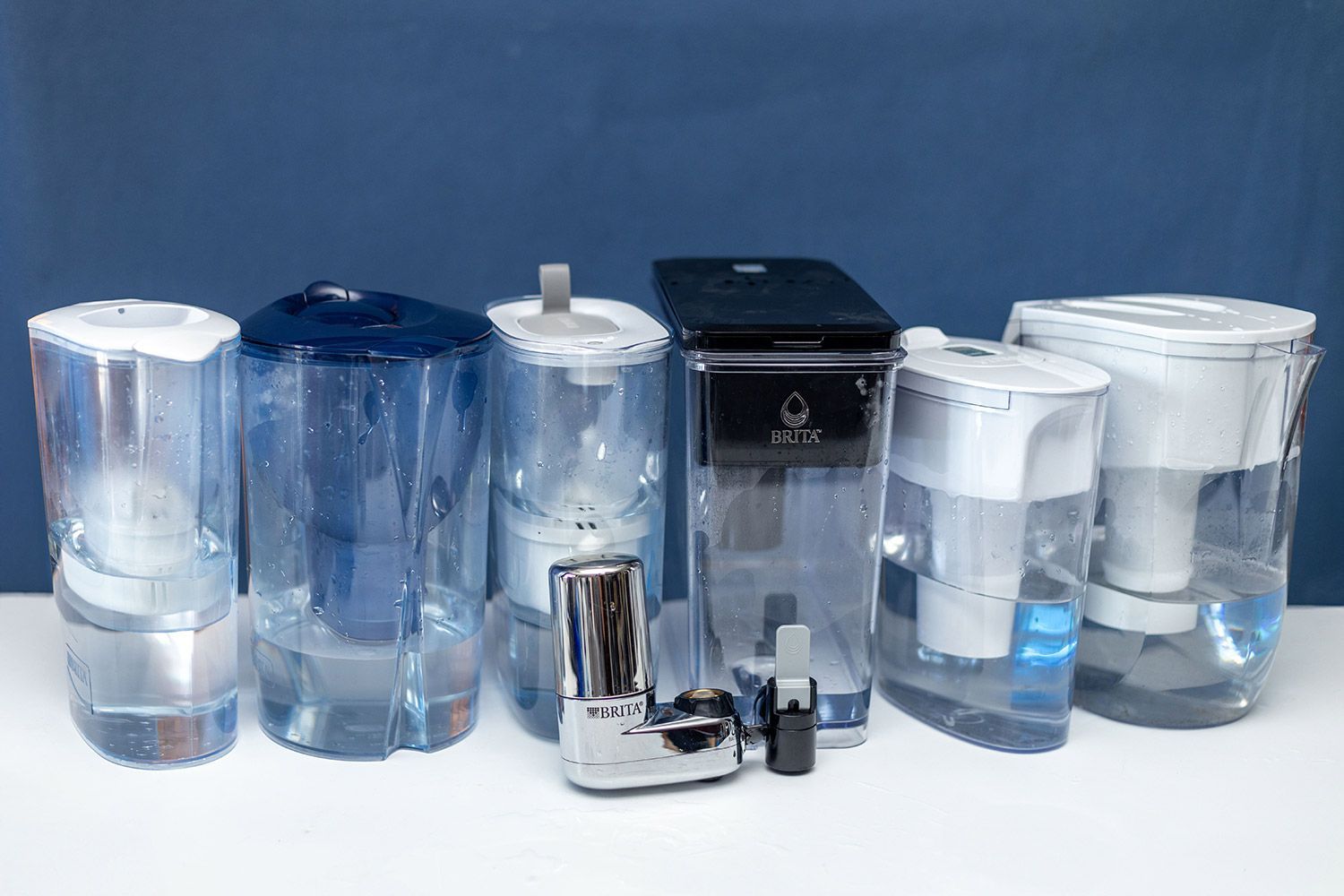
Brita’s water-filtering pitchers come in various sizes, colors, and designs. Depending on the filter that you pick (or the ones they’re compatible with), they may differ in filtering performance, as well.
Best Brita Water Filter Dispenser: Brita UltraMax (27 Cup)
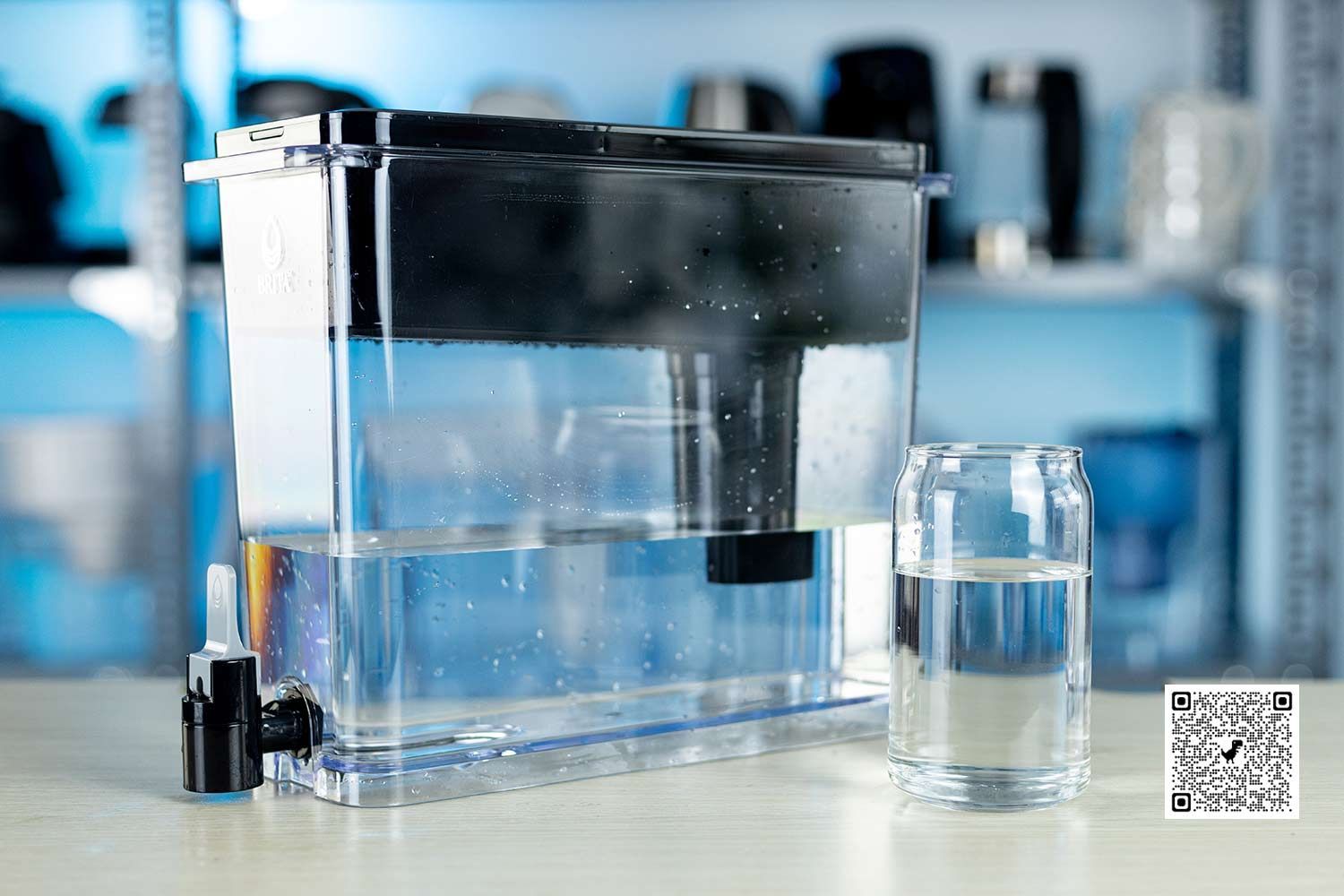
Things We Like
- Fast flow rate
- Large capacity, less refilling
- Flap opening for easy refilling
- Durable, flexible spigot
Things We Don’t Like
- No side handles
- Opaque reservoir
The Brita UltraMax 27 cup water filter dispenser is a top choice for small families or households of up to 5 people. Its standout feature is the powerful Elite filter that outperforms many competitors when it comes to filter life and ability to remove high chlorine levels while still maintaining an impressive flow rate. A major advantage is that the filter does not shed material into the water, a common issue with pitchers and dispensers in this category. While the design could use some refinement, the UltraMax is generally user-friendly and convenient to operate.
Its compact size allows it to fit nicely in most refrigerators, providing chilled, filtered water on demand. This eliminates the need for constant refilling of smaller pitchers. If you want a reliable, easy-to-use dispenser that delivers great-tasting water without a lot of hassle, the Brita UltraMax 27 cup is an excellent value.
Read our full Brita UltraMax (27 Cup) in-depth review
Best Brita Pitcher: Brita Metro Pitcher (6 Cup)
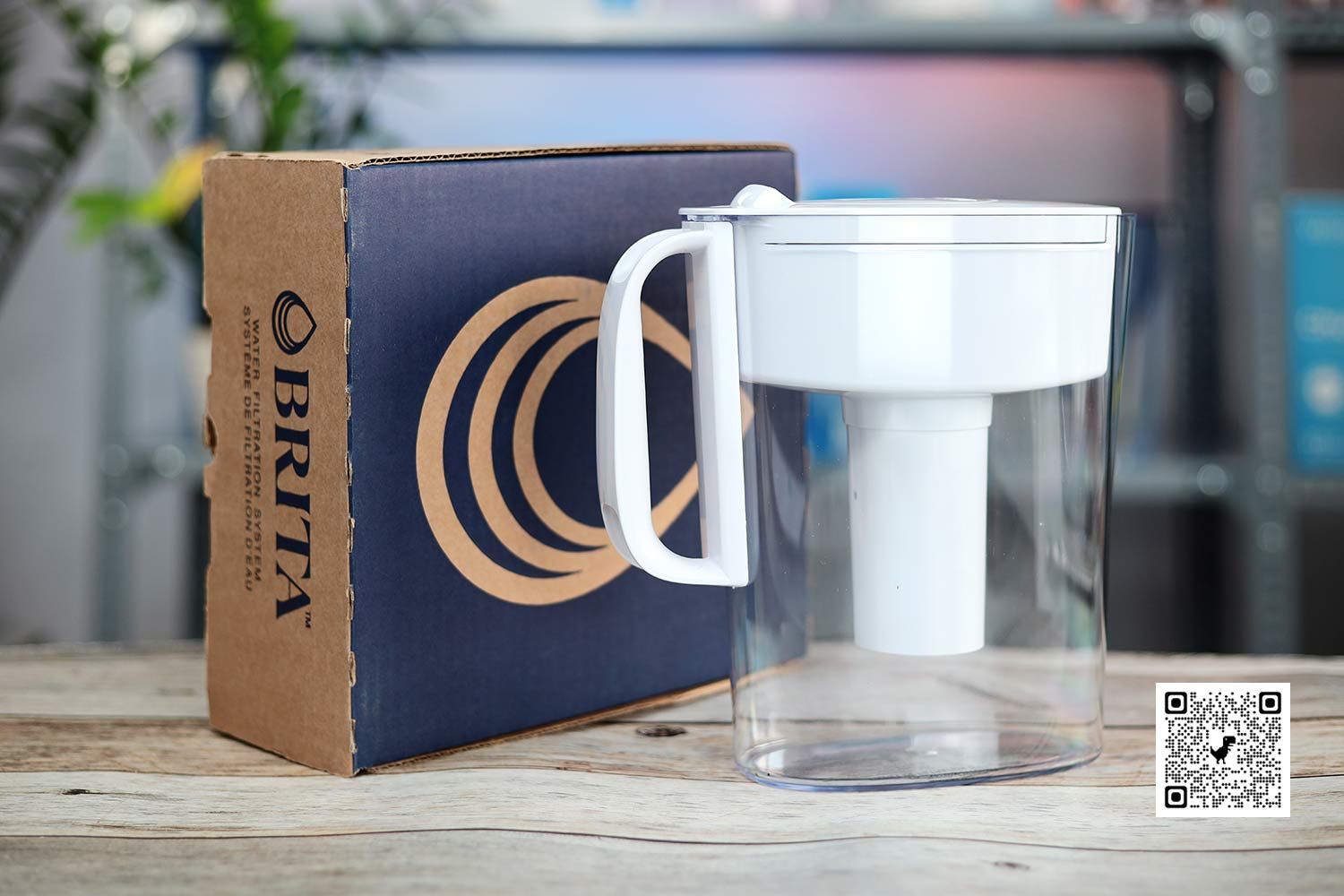
Things We Like
- Compact
- Fits a refrigerator door bin
- Fast flow rate
- Versatile filter life display
Things We Don’t Like
- Leaky filter
- Difficult to disassemble
If you don’t need the extra-large capacity of the UltraMax, then the Metro will do. Performance-wise, it also does a good job at removing chlorine and providing crisp, refreshing tasting water quickly. Notably, the pitcher is large enough to hold about 6 cups of fresh water, making it a great personal pitcher for single users.
The simple design and convenient features allow for easy everyday use. However, disassembling the pitcher for filter changes and cleaning can be somewhat challenging.
A major drawback is that the Metro has an unfortunate tendency to allow small bits of charcoal to leak into the filtered water. While this doesn't impact the safety of the water, having to ignore these floating specks is an annoyance many users may not want to deal with.
On the other hand, PUR faucet-mount filters, such as the PUR FM2500V, while having better filtering performance (thanks in part to the wide selection of filters that they come with), don’t score quite as high due to their low flow rate. Additionally, their price tags also mean they’re less accessible compared to the Brita.
Read our full Brita Metro Pitcher (6 Cup) in-depth review
PUR Water Filtering Pitchers
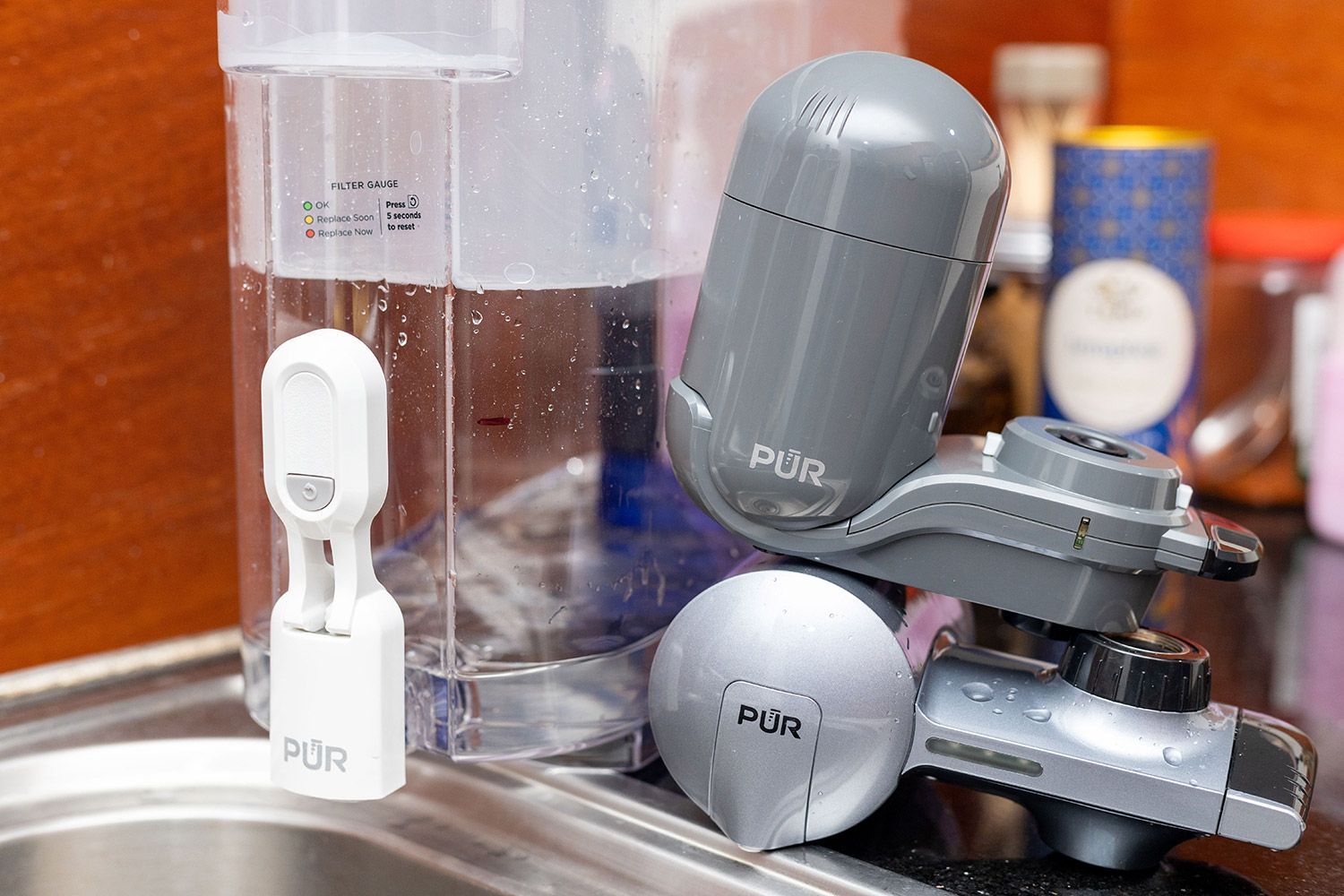
So far, we’ve only had the opportunity to test one model, which is the PUR Plus 30-cup dispenser.
Best PUR Pitcher: PUR Water Filtering Pitchers
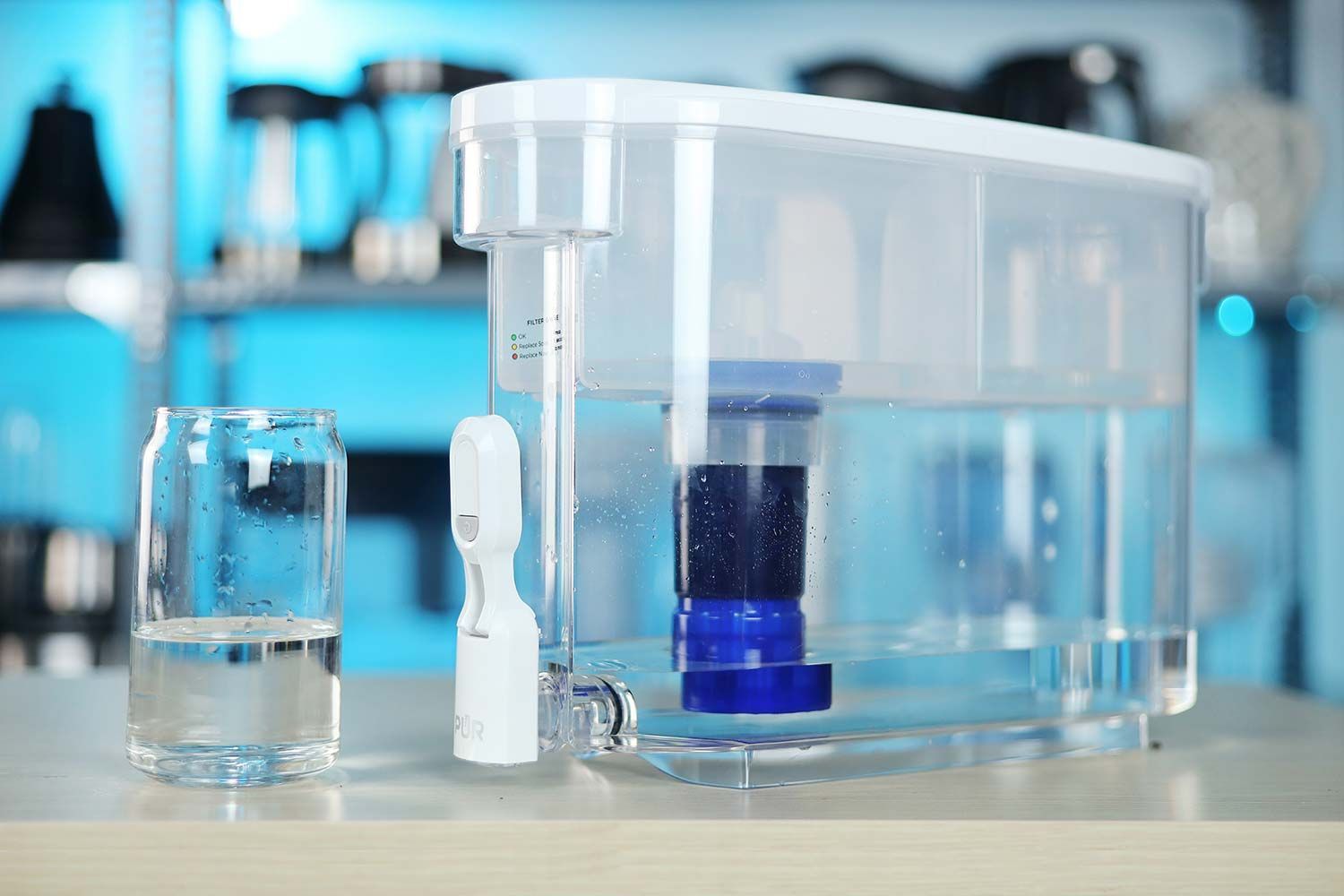
Things We Like
- Strong build, durable material
- Effective against chlorine
- Straightforward filter life indicator
- Handy spigot
Things We Don’t Like
- Slow flow rate
- Basic, unattractive design
This model excels at removing chemicals like chlorine from your water, but its basic, blocky design and sluggish flow rate may not appeal to everyone. With more visually appealing and efficient models available on the market, the PUR Plus 30-cup dispenser could face stiff competition, making it a tougher sell for some consumers.
Read our full PUR Water Filtering Pitchers in-depth review
Brita vs. PUR Faucet-mounted Water Filters
While the company has several faucet-mount water filters on offer, we’ve only had the opportunity to test one: the Brita Basic.
Best Brita Faucet Filter: Brita Basic Faucet-mount Water Filter
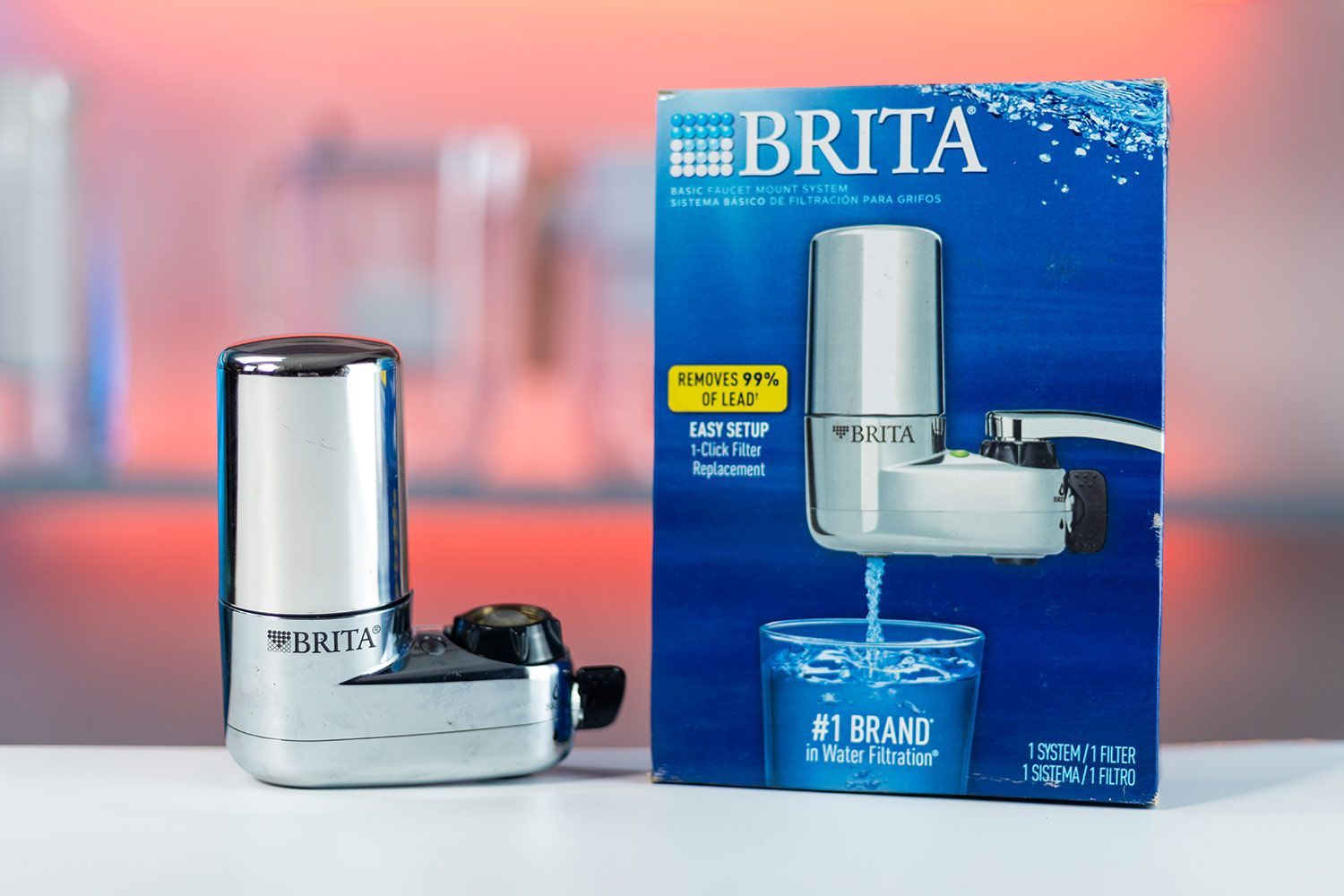
Things We Like
- Relatively affordable.
- Excellent chlorine filtration ability (nearly 100%).
- Looks premium with its chrome-plated housing.
- The routing valve’s handle is intuitive to use.
- Comes with a filter change indicator.
Things We Don’t Like
- The filter could be tugged out of the housing without depressing the filter release button.
- Leaks during filtration, necessitating the use of plumbing tape.
We’ve rated the Brita Basic faucet filter as a solid choice for most consumers seeking an affordable and effective water filtration solution. In our performance test using chlorine, the filter was effective at reducing the 10 mg/l+ concentration of the chemical in a bucket of water down to near zero. The flow rate, at 0.7 GPM, may not be as impressive as some higher-end models, but it is understandable given its budget-friendly price point.
The Brita Basic boasts a sleek, metallic appearance that can seamlessly blend with most kitchen decors, adding a premium touch to your sink area. However, there are a few minor design issues to consider. For example, the filter may occasionally pop out of the housing without the need to press the filter release button on the side. Despite these small drawbacks, the Brita Basic remains a reliable and cost-effective option for those looking to improve their tap water quality without breaking the bank.
Read our full Brita Basic Faucet-mount Water Filter in-depth review
Best PUR Faucet Filter: PUR FM2500V Faucet Water Filter
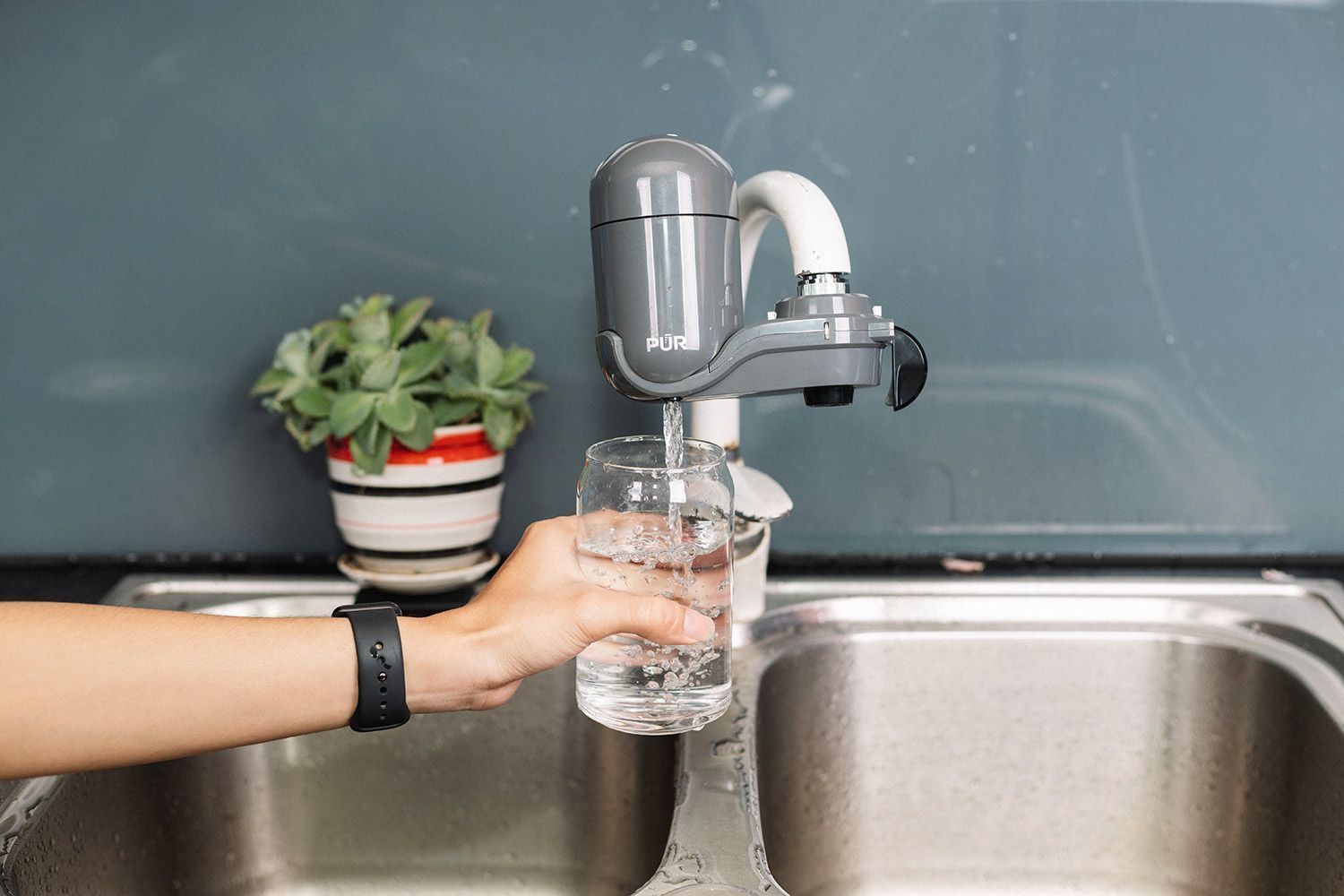
Things We Like
- Excellent chlorine filtering ability
- Easy installation and servicing with "one-click" system
- Lightweight and compact design
- A filter change indicator
Things We Don’t Like
- Low flow rate in filtering mode
- Weak grip on faucet due to the one-click system
- Flimsy routing valve’s handle
- The plastic construction can be problematic for long-term durability
The PUR FM2500V was a stand-out in our test — so much so that it got into our list of the best faucet-mount water filters. Performance-wise, the filter expectedly shone in chlorine removal. Its Mineral Core cartridge managed to reduce chlorine from high levels of over 10 mg/l to nearly 0 mg/l. Disappointingly, its flow rate was rather slow at just 0.44 gallons per minute. Despite the slow flow rate and durability concerns, the FM2500V's effective chlorine removal and mineral replenishment isn’t a bad option for those seeking a capable faucet-mount water filter.
Read our full PUR FM2500V Faucet Water Filter in-depth review
What of Replacement Filters for PUR and Brita?
Brita Replacement Filters
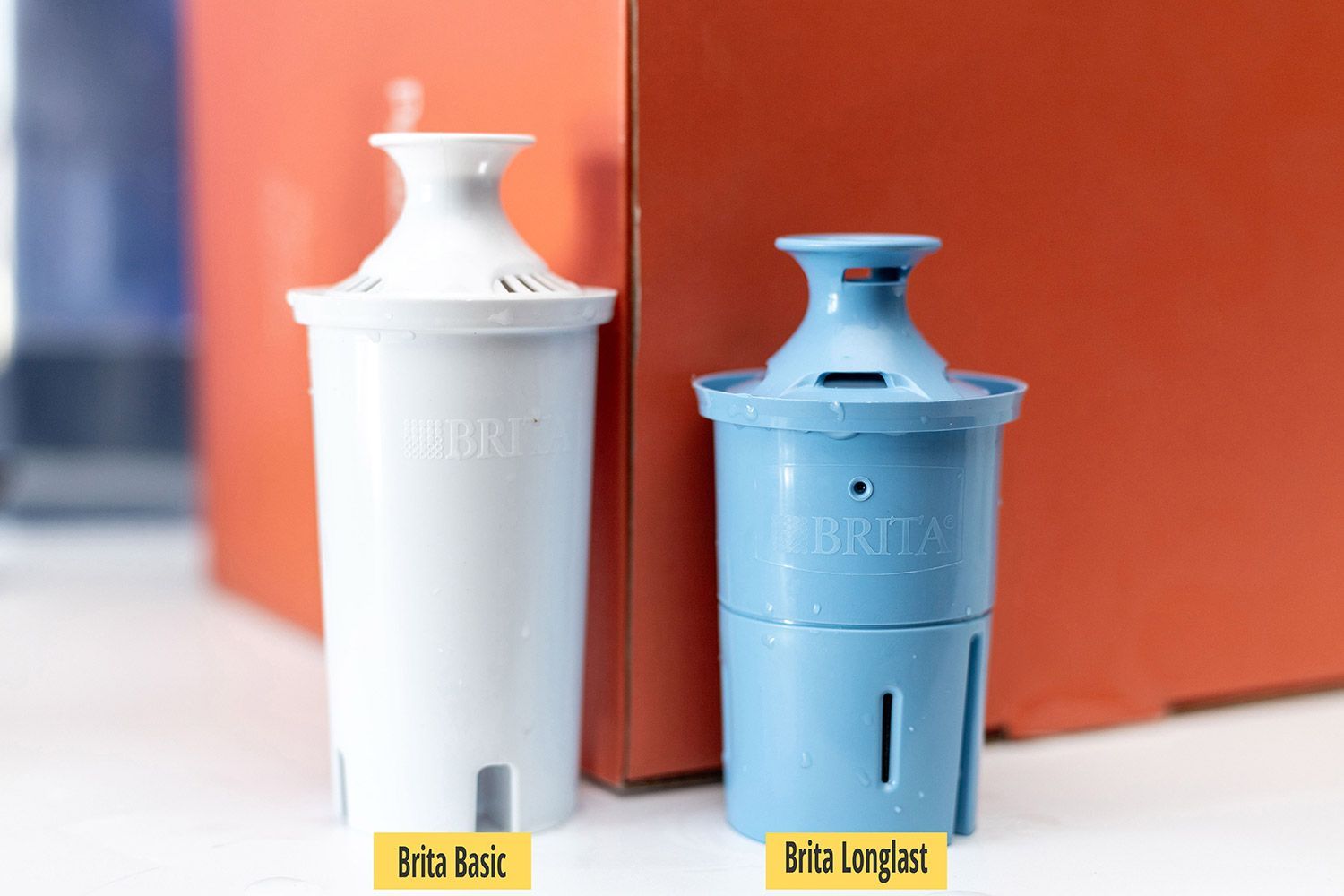
Did the filter in your pitcher run out at last? You can pick one of two universal filters: the Brita Standard and Brita Longlast. Any Brita-branded pitchers and dispensers can accept either of these filters.
By design, the Standard and the Longlast are similarly constructed: both use Granular Activated Carbon (GAC) tech and ion-exchange resin beads. However, their filtering performance and longevity will differ.
All of Brita’s filters are tested and certified by the National Science Foundation (NSF) and the Water Quality Association (WQA).
PUR Replacement Filters
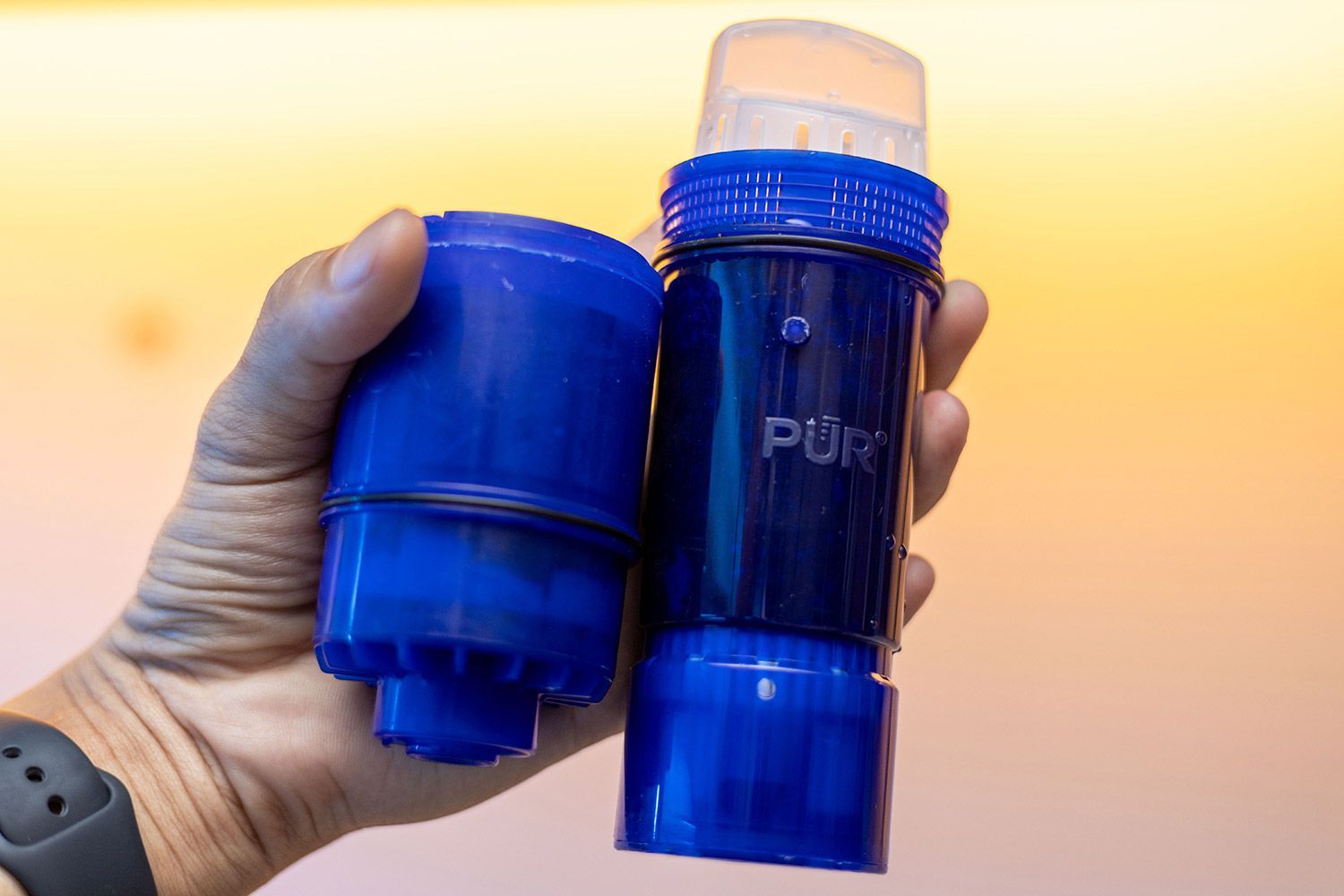
PUR offers three main types of filters:
- PUR Basic Filter: Available for both pitcher and faucet-mounted systems.
- PUR Lead Reducing Filter: Designed specifically for pitchers and optimized to tackle lead contamination more efficiently.
- PUR MineralClear Filter: Exclusive for faucets and is equipped to handle water with a high concentration of dissolved minerals, also known as hard water.
All PUR filters utilize the company's patented Maxion Filter Technology, which combines granular activated carbon (GAC) and ion-exchange resin beads. This innovative combination is designed to enhance the removal of various contaminants. In fact, all PUR filters are certified by the Water Quality Association (WQA) to effectively reduce common chemicals like chlorine, mercury, and pesticides.
Conclusion
We hope this Brita vs. PUR comparison has answered some of your burning questions regarding these brands. Both are reputable manufacturers that craft some of the best filtering systems on the market. But they each have special characteristics that will likely make one brand better for you than the other.
Keep these quirks in mind and you can make an informed decision on what system and what filter to choose for your household.